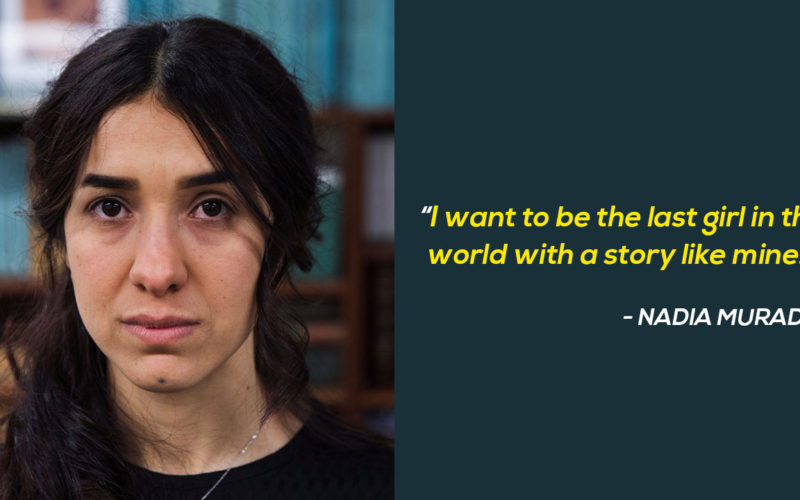- 26.0Kshares
- Share
- Tweet
- Facebook Messenger
No matter how hard you are knocked down in this bitter journey called life, it is never too late for a new inception. And 25-year-old Nadia Murad’s course from being an ISIS captive to winning the Nobel Peace Prize is a prime example of the same.
Nadia Murad is an activist from the maltreated Yazidi religious minority in Iraq who was awarded the prestigious award on 5th October 2018, along with 63-year-old Denis Mukwege. While Denis is a Colognese surgeon who dedicated his life to treating the victims of rape in the Democratic Republic of Congo, Murad was honored for her incredible efforts to free the traumatized Yazidis.
In 2014, Jihadist militant group ISIS stormed the town of Sinjar and kidnapped around 6500 women and children in the process. Murad, who was just 20 year old at that time was picked up from her village Kocho and was forcefully separated from her family. Her mother and six brothers were killed as a part of the group’s genocidal campaign to wipe out the religious minority. Speaking to CNN, she said,
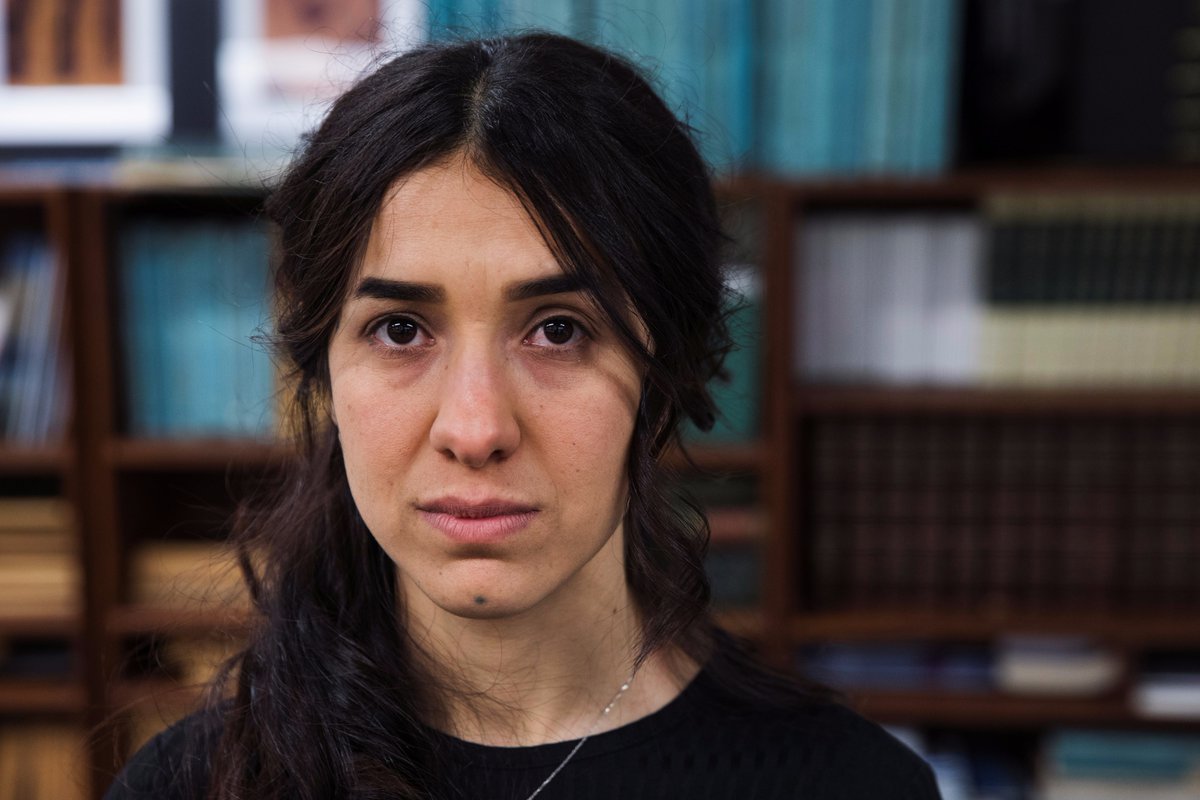
“Nearly 6,500 women and children from the Yazidi were abducted and about 5,000 people from the community were killed during that day. For eight months, they separated us from our mothers and our sisters and our brothers, and some of them were killed and others disappeared.”
She was forced to get on the bus and was taken to Mosul. She got the taste of the torture that would follow for the next few months as soon as she stepped into the bus. In her book The Last Girl: My Story of Captivity, and My Fight Against the Islamic State, she explains how one militant came and groped her breast.
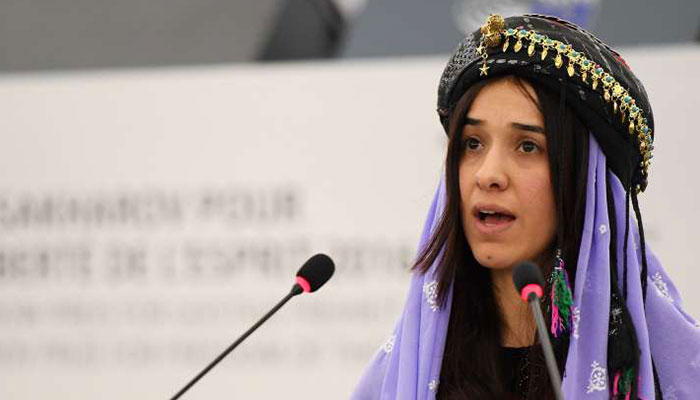
“It felt like fire. I had never been touched like that before . . . my tears fell on his hand, but still he didn’t stop.”
She was then taken to a slave market along with an unmarried woman to be sold into sex slavery. It was there where a judge declared her as his fourth sex slave. She was kept as a prisoner in the judge’s house only to be beaten and raped every day. To add to it, she was often asked to wear party dresses, apply makeup and serve tea to the guests.
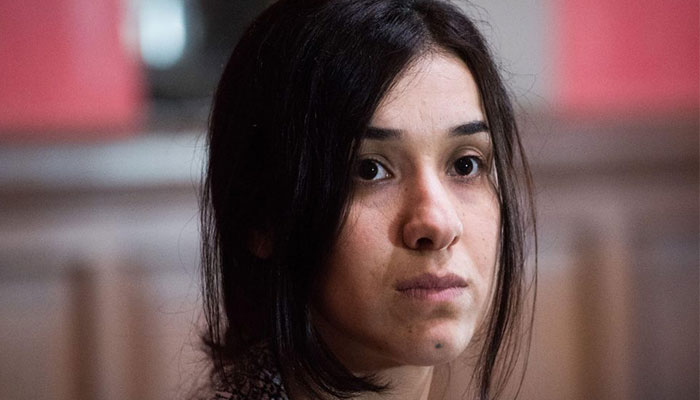
She was not even allowed to close her eyes while being raped. On doing so, she was beaten by the merciless terrorists. When she made an attempt to escape, she was caught and gang-raped by 6 guards to teach her a lesson.
“You don’t know who will open the door next to attack you, just that it will happen and that tomorrow might be worse.”
In a conversation with TIME, she said,
“I did not want to kill myself, but I wanted them to kill me.”
However, after 3 months of brutal and endless suffering, she finally managed to escape when her imprisoners left the door open. With the help of a neighboring family, she successfully crossed the ISIS territory and went to a refugee camp in Duhok in northern Iraq. She finally met one of her sisters in Germany with whom she lives today, thanks to an organization that works for the Yazidis.
She saw a new dawn in her life when she met the Western Journalists and became one of 1,000 women selected for a refugee programme run by the regional government of Baden-Wurttemberg in south-west Germany.
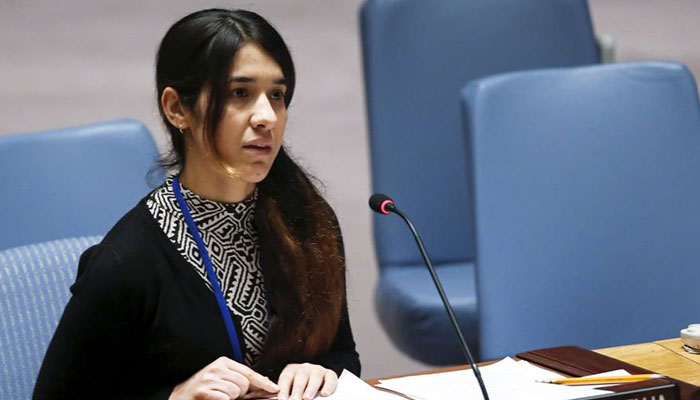
Murad went on to become an activist, and in 2016, she became the UN’s first Goodwill Ambassador for the Dignity of Survivors of Human Trafficking.
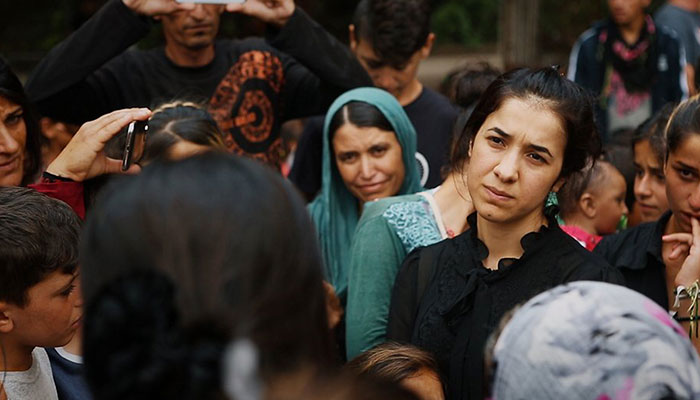
She was also awarded the Vaclav Havel Human Rights Prize by the Council of Europe in that very year.
And now, in 2018, Nadia Murad created history by winning the first Iraqi to be handed the esteemed Nobel Prize. The woman who works relentlessly to spread awareness and gain support for the Yazidis, also says,
“Once I escaped, I felt that it was my duty to tell the world about the brutality of the Islamic State.”
“I want to be the last girl in the world with a story like mine.”
She is also the second youngest to win the Nobel after Pakistan activist Malala Yousafzai. We take time to salute Nadia Murad for her extraordinary accomplishments in her life and humanitarian efforts for the people in need. It is because of people like her that the world is still a good place to live in.
- 26.0Kshares
- Share
- Tweet
- Facebook Messenger




